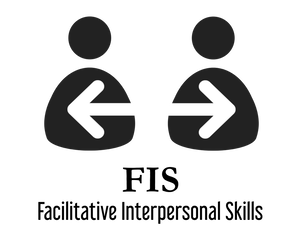Psychotherapy Research at Ohio University
The OHIO lab utilizes a Common Factors perspective for understanding how clients improve through psychotherapy treatments through the research of various therapist and client variables. We have adapted a model for understanding how most forms of specific treatments have been equally successful, which we refer to as an integrated contextual model. The integrated contextual model explains how treatment successes are influenced by relationships, but are also heavily influenced by Culture, Theory, and Techniques
Lab Setting
The Psychotherapy and Interpersonal Process lab (P.I.P lab) at Ohio University conducts research from multiple laboratory and clinic sites. From OHIO, P.I.P. collects data from within our clinical training program’s in-house Psychology and Social Work Clinic. We also conduct research within the P.I.P. lab and the lab is used to record, store, and analyze psychotherapy sessions. We also maintain collaborations worldwide, including sites with university labs similar to our own as well as medical centers. Our research extends to the use of web-based and tele-therapy media.
Therapist Facilitative Interpersonal Skills (FIS)
A particular interest in our lab has been on studies that measures the therapist’s pre-existing level of relational skill, which we refer to as Facilitative Interpersonal Skill (FIS). We take a broad approach in defining therapist FIS as a collection of individual skills that are associated with the large, documented literature on findings of positive therapy processes that influence outcome (e.g.,alliance capacity, empathy, warmth, persuasion). FIS has been a defining feature of our lab and we have now conducted three studies that have demonstrated that therapists FIS is an independent predictor of how those therapists develop alliances as well as the ultimate post-treatment improvements that are achieved.
Expectations, Help-Seeing, and Early Alliance
One facet of this work has been to understand how these therapy expectations and alliance can be defined and categorized. We have also examined which client traits can be independently defined. Our methods have ranged from statistical categorization (factor analysis) to qualitative analysis – all with the goal of increasing our understanding of these important predictors of therapeutic outcome.
In addition, we have developed and tested 3 interventions for treatment expectations for psychotherapy. These have ranged from brief, public service announcements, to a 20-minute workshop.
In addition, we have developed and tested 3 interventions for treatment expectations for psychotherapy. These have ranged from brief, public service announcements, to a 20-minute workshop.
Clients may not benefit from early interventions if they never seek treatment. Thus, research is needed to understand how barriers, such as stigma, may interfere with people seeking out psychotherapy. We’ve developed a brief mass-media video intervention that is designed to combat the negative effects of stigma in the help-seeking process. We are also examining how these expectations and help-seeking processes may be influenced by the cultural context in which they occur. Thus, we are currently examining how help-seeking and expectations compare in samples of persons from Mainland China relative to persons in the United States.
Below is the brief, public service announcement (PSA) developed and tested by Amy Demyan (Demyan & Anderson, 2012):
Below is the brief, public service announcement (PSA) developed and tested by Amy Demyan (Demyan & Anderson, 2012):
Expectations About Therapy: Eating Disorders in Athletes
The following video was created for outreach to athletes to explore expectation around healthy eating. The video was created by Shelby Martin in collaboration with the OHIO psychotherapy lab team. Results from a study using this video and intervention were effective as described in the following publication:
Martin, S.J., Saulnier, K.G., Horvath, S., Anderson, T. (2020). Increasing Help-Seeking for Eating Pathology among Collegiate Athletes: An Examination of a Novel, Customized Intervention. Psychology of Sport & Exercise, 50, DOI: 10.1016/j.psychsport.2020.101731
Martin, S.J., Saulnier, K.G., Horvath, S., Anderson, T. (2020). Increasing Help-Seeking for Eating Pathology among Collegiate Athletes: An Examination of a Novel, Customized Intervention. Psychology of Sport & Exercise, 50, DOI: 10.1016/j.psychsport.2020.101731
Brief Early Interventions
A related aspect of building treatment expectations has been been our work on brief interventions -- how relatively brief pre-treatment interventions might help clients build better alliances with their therapists. For example, we have examined the influence of brief programs designed to inform clients about psychotherapy as well as how a brief mindfulness intervention might contribute to immediate therapeutic improvements.
